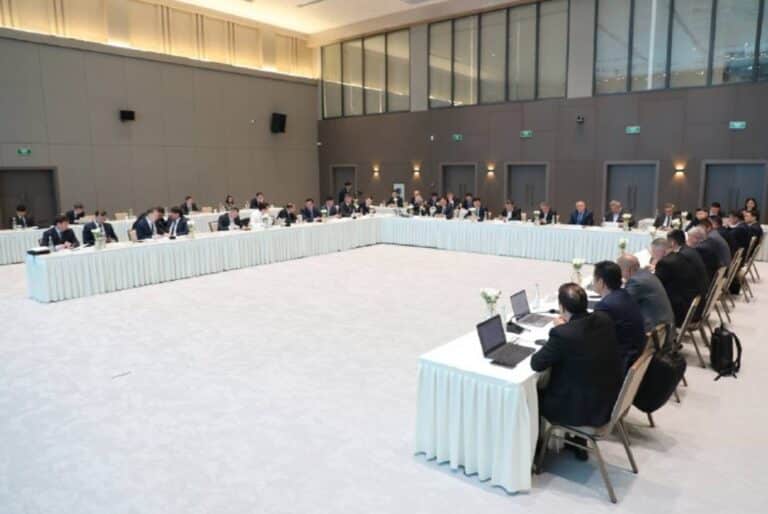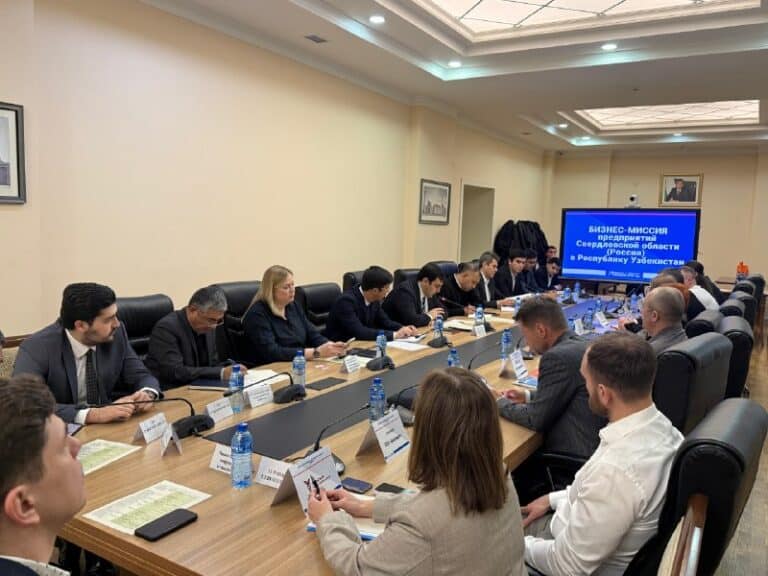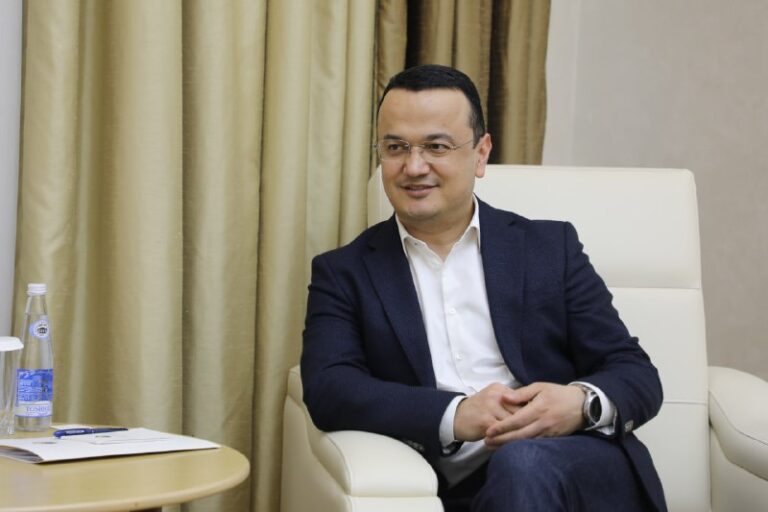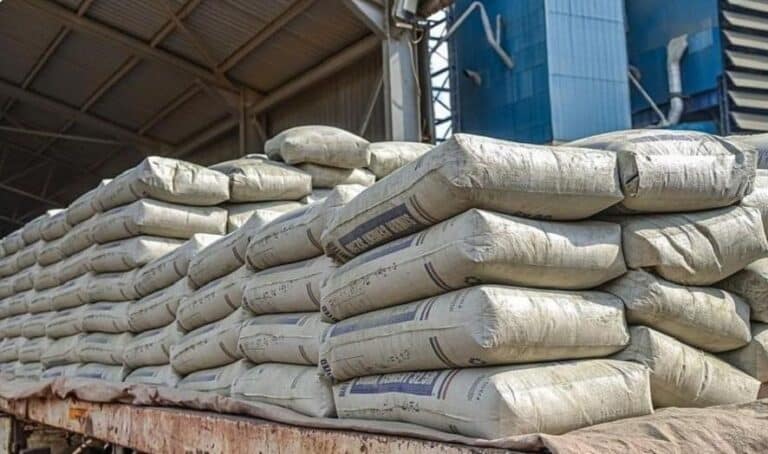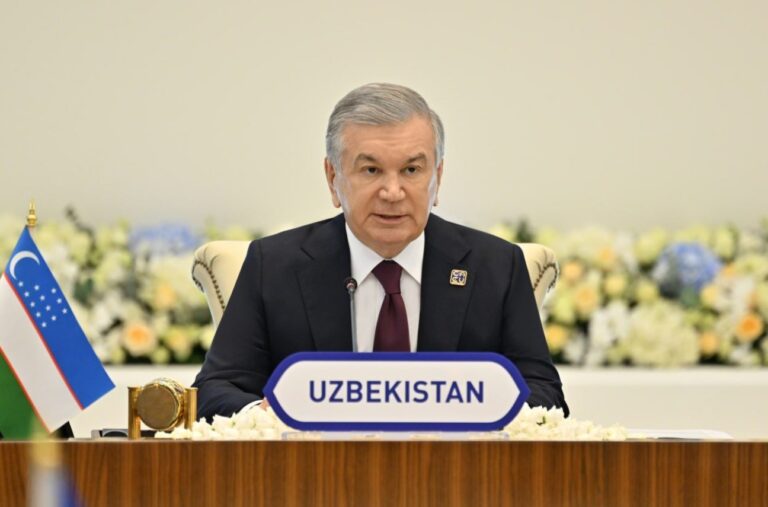
The pharmaceutical sector is emerging as a key driver of economic progress in Uzbekistan, aligning with the nation’s overall economic revival. This growth is attributed to various strategic initiatives, including tax reforms, changes in customs regulations, and the facilitation of conducive conditions for production, which have propelled the pharmaceutical industry to unprecedented heights.
Remarkable Progress in the Pharmaceutical Sector
Uzbekistan’s pharmaceutical market is witnessing rapid expansion, with growth evident in multiple facets of the industry. The number of engaged companies has surged, with over 200 enterprises active in the sector. Among these, 85 focus on medicine manufacturing, while more than 120 produce medical products and equipment.
Recent data from the Statistics Agency indicates that these entities collectively generated pharmaceutical products valued at 2 trillion soums over the past seven months. Notably, this period also saw the introduction of 195 new product varieties, marking a remarkable threefold increase compared to six years ago.
Furthermore, the export volume of pharmaceutical products from Uzbekistan has soared to $80 million, demonstrating a fivefold growth over the past six years.
Plans to inaugurate six new enterprises in Uzbekistan by 2026 represent an investment of $280 million into the sector. Additionally, the retail aspect of the industry has experienced substantial expansion, with the number of pharmacies increasing by 1.5 thousand compared to 2022, bringing the total count to nearly 16 thousand nationwide.
The industry has attracted significant investment, with a reported $27.7 million in assets, including approximately $11 million from foreign sources. Foreign investment in the sector has witnessed a ninefold increase over the past six years.
Reducing Dependency on Imports
Despite the country’s historical reliance on imports to meet pharmaceutical demands, recent trends suggest a gradual decrease in the volume of imported pharmaceutical products. While Uzbekistan currently consumes over 1.5 thousand pharmaceutical products worth $1.6 billion annually, local manufacturers contribute only about half of the required medicines and medical supplies. The country import volume is $1.2 billion.

However, the import volume has decreased as imports for the first seven months amounted to $795 million, representing a 9% reduction compared to the previous year.
Moreover, there has been a notable increase in the import share of high-quality pharmaceutical products from several countries, including Japan (880%), Switzerland (273%), Austria (147%), Germany 126% (126%), and Italy (113%). In contrast, imports from India and China have declined by 27% and 11%, respectively.
Attractiveness to Global Pharmaceutical Players
Uzbekistan’s pharmaceutical industry is increasingly attracting global pharmaceutical companies. This is not only due to its standing as the largest market in Central Asia with a $2.5 billion industry volume and a population of 36 million but also as the gateway to a broader regional market of 120 million people with a market volume of $6 billion. Pharmaceutical products manufactured in Uzbekistan can be expediently registered in neighbouring Central Asian countries.
Establishing pharmaceutical special economic zones (SEZs) in various regions of Uzbekistan has further fuelled international interest, with 70 investment projects valued at $560 million, including $324 million in foreign direct investments.
The primary objective of these SEZs is to elevate the local production share of pharmaceutical products from 35% to 80%, with a strategic focus on attracting leading global pharmaceutical companies to the Uzbek market to realise this goal.

Opportunities in the Pharmaceutical Cluster
Companies that establish production facilities in Uzbekistan gain access to several benefits, including preferential use of SEZ infrastructure, streamlined product registration processes, and reimbursement of research and development costs (R&D). Notably, such companies also gain entry into the markets of Central Asia and the CIS countries. They can participate in the innovative pharmaceutical cluster, Tashkent Pharma Park, a special regional project.
Tashkent Pharma Park, the largest social initiative in Uzbekistan already divided among investors, spans 130 hectares and is expected to create 4.4 thousand jobs. Notably, ten prominent research, educational, and administrative facilities will be housed within the cluster alongside the industrial zone.
The comprehensive project, valued at $788 million, aims to transform Uzbekistan into a hub for pharmaceutical research and production, with provisions for the National Pharmaceutical Institute, a data center, a gym, research centers, and educational facilities. Pharmaceutical companies are welcome here.
Government Financial Support
To facilitate this initiative, the government has taken decisive steps to ease the financial burden on entrepreneurs in the pharmaceutical sector. As part of this effort, Asakabank has been appointed as a partner to foster the development of the pharmaceutical industry. The bank is prepared to invest in projects with a maximum share of 25% and has established a Financial Center for Pharmaceutical Projects. Furthermore, Asakabank is actively working to secure $300 million in long-term credit resources to bolster local production and reduce reliance on imports.
In addition to financial support, the government is also focused on enhancing domestic production by striving to develop 400 new products and reduce import reliance by $670 million, mainly by providing support to small enterprises. Businesses in the pharmaceutical sector will have access to revolving loans of up to $1 million for 18 months, while exporters can apply for loans of up to $2 million secured by insurance of proceeds.
Moreover, the government is extending various benefits and preferences to pharmaceutical manufacturers and exporters. The special attention is aping to the acquisition system. Relevant departments will monitor all implemented support measurements.
Strict Standards in Place
Strict standards have been established to ensure product quality and safety: 35 local enterprises produce medicine following GMP (Good Manufacturing Practicе) standards, and 111 enterprises work with GDP (Good Distribution Practice) standards.
According to a presidential decree, only organisations producing medicines according to GMP (Good and GDP standards are eligible to participate in government acquisition tenders for pharmaceutical products. This measure aims to align the local pharmaceutical industry with international GPP standards (Good Pharmacy Practice) and foster healthy competition while supporting export potential.

